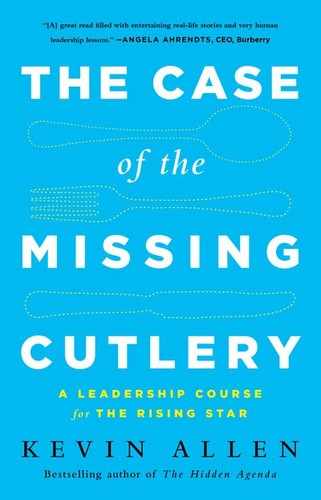Chapter 1
Aghast
Building 139 at John F. Kennedy International Airport was an imposing institutional-looking building that housed a large flight kitchen. Clad in a white lab coat, I was the young assistant manager of Marriott’s in-flight services, and I oversaw a facility that produced up to five thousand airline meals a day. Now, this wasn’t the peanut packet per person airline service of today. Most flights, even short hops, served a tray per passenger with some kind of hot meal, all with proper cutlery. (This was a bygone time when cleaning the plane meant emptying the ashtrays! I kid you not . . . there actually were smoking sections.)
Of course, with cooking and eating comes cleaning. My other responsibility was presiding over the dish room, where dozens of trucks each day would disgorge the contents of the catering service into a giant room with four enormous conveyor-belted dishwashing machines.
One sunny summer afternoon our general manager called me in to a meeting. We had a surprise visit from a fellow named George, a VIP at our single largest client, Eastern Airlines. George was a sober man with a clipped flattop military haircut and a surly demeanor. Now, I like just about everybody, but he was, well, altogether dislikable. He laid out a mystery. “We’re losing our cutlery . . . by the thousands. It’s costing us a fortune as well as delaying flights by the score. You need to get to the bottom of this and quick, and make no mistake about this: we’re holding you responsible! I’m back in a week, and if it isn’t solved there’ll be hell to pay.”
When the meeting was over, the general manager assembled his team. He made it quite clear that the mystery of this wholesale cutlery disappearance must be solved or the chaos that it produced would bring very grave consequences. As a somewhat reserved and very new member of the team, I don’t know what possessed me, but I raised my hand and said, “I’ll look into it.” Everyone at the table seemed relieved that I, in my naive ambition, had put my head on the block. The general manager nodded, and said it would be my job to solve the mystery.
I left feeling as if I was the dog that caught the fire truck, and began by making all the necessary inquiries. I looked in our stockroom, created elaborate tracking systems for the cutlery that was in stock, and monitored all levels carefully, with no result. The losses continued.
I decided then to see whether our precious cutlery was leaking out through the loading dock, so I made a surprise visit to the dish room at 5:45 a.m., hours before the staff expected me to appear. The dish room staff worked nights so that all of the dishes and cutlery would be clean, dried, and neatly stacked for the next day’s meals.
The staff was a spirited mosaic of people from places like Puerto Rico, Haiti, and all over Central America. I came to adore these endearing and at times maddening people—there were literally dozens, and I tried desperately to know each of them. Each day at the end of the shift I would see them in the cafeteria; over coffee too strong to imagine they would show me photographs of new additions to the family, ask me to help fill out their kids’ college applications, and occasionally ask for a loan of $10 until payday. You haven’t seen dignity until you’ve spent time with individuals like these, who worked so desperately hard to make a life for their families. (I was, after all, one of them, who through the miracle of a scholarship was the first in a family of laborers to go to college.)
Well, you can imagine how surprised they were to see me at such an hour. I appeared unusually businesslike as I looked through the cavernous dish room. High and low I searched and then, for some reason, as I passed the monstrous trash compactor at the end of the loading dock I looked down to see, amidst the detritus of the day’s flights, gleaming Eastern Airlines cutlery.
It was being thrown away.
I turned to a knot of dish room staff and, wide-eyed, I gasped, “For God’s sake, their silverware is in the compactor! It’s being thrown away! What on earth are you doing?” Mr. Fuentes, the supervisor, spoke up. He looked at me sheepishly and, red-faced, replied, “Yes, Mr. Allen, we know. But it won’t come clean. No matter what we do, half of it has these black stains. We run it through again and again but the stains on half of them won’t go away. Mr. George from Eastern Airlines made it clear he would have our heads if the cutlery wasn’t spotless at the end of the shift. We didn’t know what to do. We didn’t want to disappoint you.” I thought immediately about how imperious I could be at times. (I shudder when I think about it now.)
So here these workers were, faced with a dilemma. They perceived that there would be dire consequences to their livelihoods if they produced dirty cutlery. The system they were working with would not cooperate and management expectations were clear, so logic prevailed. They arrived at a batch of spotless cutlery, one way or the other. The cutlery got ditched.
Now what?
